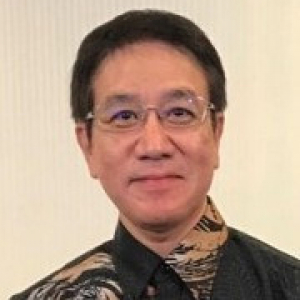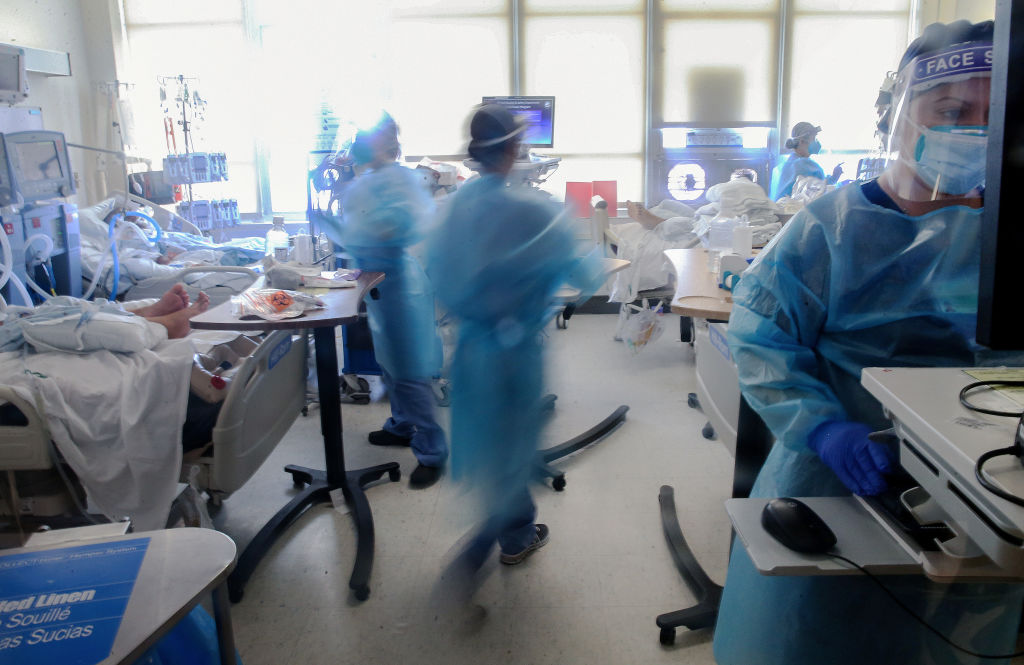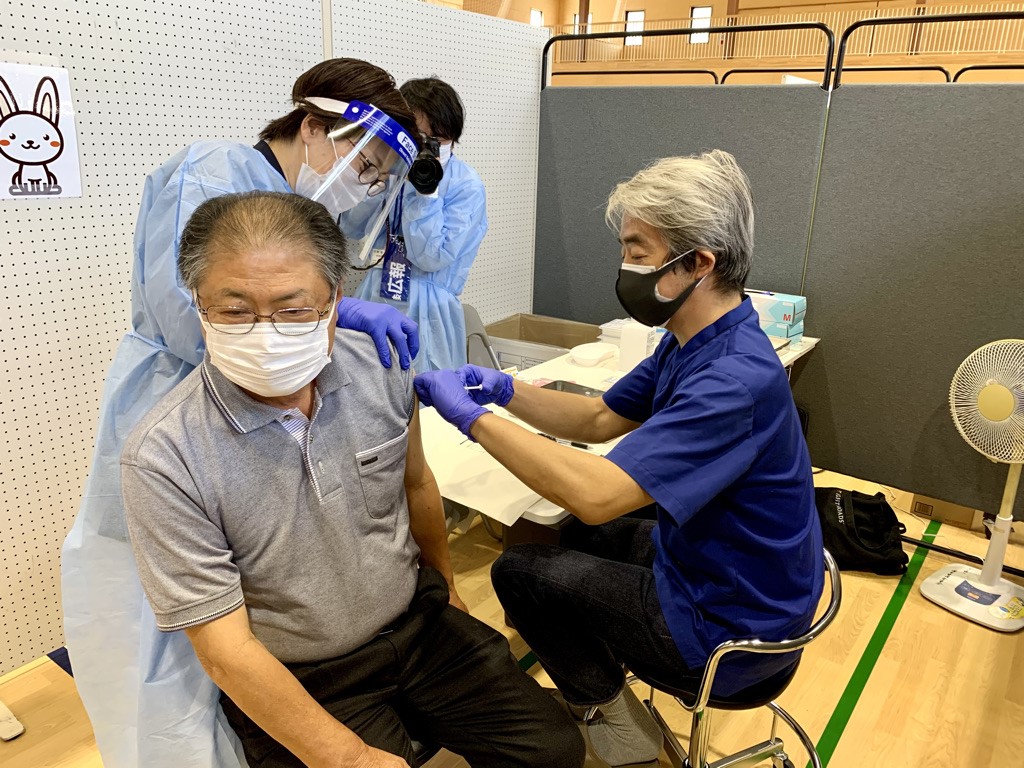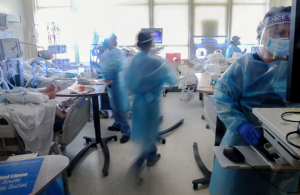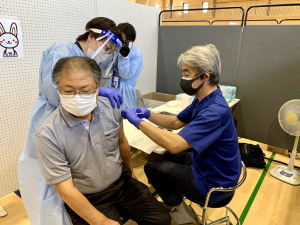
What Japan Should Do as Chair of the G7 Hiroshima Summit
May 18, 2023
R-2023-012E
As chair of the Group of Seven Hiroshima Summit, Japan must lead discussions among the G7 leaders and promote policies that will lead to the empowerment of each and every individual in Japan and other countries. Leading researchers in the field of global health offer six proposals based on the concept of human security, originally proposed by former UN High Commissioner for Refugees Sadako Ogata and which is gaining renewed geopolitical relevance in recent years.
Interrelated Risks to Human Security
“Human security” (1), which considers not only national-level security but also individual-level security, is important. However, the risks to human security are increasing daily, with various risks such as climate change, armed conflicts, cybersecurity, food crises, energy crises, geopolitical risks, pandemics, and others intertwining to create systemic risks. In such crises, those in the most socially vulnerable populations are heavily impacted, while safety nets fail to function adequately, leading to social unrest and turmoil both globally and within Japan.
In particular, the dysfunction of governance in addressing systemic risks has been highlighted. In global health, the limitations of the global health governance have been repeatedly pointed out, and the dysfunction of governance was exposed during the COVID-19 pandemic. The following four factors can be identified as contributing to this:
- Structural challenges faced by international organizations like the WHO: Decision-making within organizations such as the WHO is primarily driven by member states, which can be influenced by national interests and political considerations.
- Budgetary and structural challenges within the WHO: The WHO headquarters does not have sufficient discretion to effectively address global health challenges.
- Challenges related to decision-making by WHO member states: When member states make decisions within international organizations, they consider not only global reputation but also factors such as domestic public opinion and national security concerns (2).
- Complexity of the problems themselves: In addition to the aforementioned challenges, decision-making may be ineffective or impossible when the problems themselves are inherently complex.
During this pandemic, a particularly striking observation was the malfunctioning of health systems in various countries, including high income countries, which had received a certain level of evaluation through the Joint External Evaluation (JEE) conducted by the WHO (3). The underlying causes of this were the lack of preparedness for the pandemic and the vulnerability of existing healthcare systems (4, 5), which are rooted in the structural challenges within international politics, international organizations, and member states mentioned earlier. While the importance of health and healthcare is relatively undisputed, this pandemic has exposed the reality that decision-making in this area is heavily influenced by international and domestic politics.
These challenges are not limited to global health alone. Rather, they can be seen as challenges that arise whenever dealing with systemic risks. As a major power that has historically led international security and political economy, the G7 will naturally face scrutiny, and it is only fitting that it does so.
The Role G7 Should Play in Global Health
In the current situation in May 2023, as chair of the G7 Hiroshima Summit and the G7 Health Ministers’ Meeting, Japan is expected to take a leading role and make unique contributions and specific proposals. Particularly in the field of global health, Japan’s leadership role is expected not only to focus on preventing and overcoming individual diseases in low- and middle-income countries but also to prevent systemic risks and further strengthen the function of global public goods within an increasingly fragmented global society.
What Are the Unique Contributions of the G7?
The G7 can be considered to fulfill two roles: practical contributions and the creation of values and norms. Taking a functionalist perspective (6), practical contributions by the G7 leveraging its technological and economic power are significant. More than 70% of official development assistance (ODA) comes from G7 countries, and the majority of vaccines, therapeutics, and testing technologies developed during the COVID-19 pandemic with proven safety and efficacy stem from scientific and technological advancements in G7 countries.
On the other hand, with the rise of groups like the G20, there is a possibility that the G7 may become obsolete. However, there are certain things that only the G7 can do. That is the role of creating values and norms. The common values that unite the G7 member states go beyond economic power, and they are rooted in democracy. Shared values of upholding democracy worldwide and contributing to global stability and peace are expected, considering the G7’s central role and the power it possesses (7).
Furthermore, based on the common value of democracy, the G7 can propose a vision of how the world should be and drive international politics, going beyond mere financial aid and technological development. Through their close and intimate gatherings, the G7 can not only create rules but also generate interest in specific global issues on a global scale and shape the momentum towards solving these challenges. This is a significant role of the G7.
Therefore, the G7 should effectively utilize its resources and expertise, address power imbalances and disparities, and ensure accountability for its actions. In addition, the G7 can leverage its shared values to lead the world in a certain direction, and it should do so. These actions align with the essential functions (8) of the global health system that have long been emphasized, with the G7 specializing in providing public goods, conducting research and development, and setting rules and norms.
As the G7 Chair, Japan Should Promote the Following Initiatives
In this paper, based on discussions within the research group at the Tokyo Foundation for Policy Research, we present six specific proposals for Japan as the G7 chair to contribute to the world in the field of global health and directly benefit our country’s citizens and healthcare.
1. Strengthen the CDC (Center for Disease Control) Function at the National and Regional Levels and Establish a Health Crisis Response Platform Involving the Private Sector
The limitations of global health governance centered around the WHO have been pointed out with each occurrence of global pandemic. In addition to the conventional consensus-based cooperative framework, it is necessary to support the strengthening of CDC functions as command centers for health crisis response in each country and the establishment of frameworks for crisis response involving the private sector.
In Japan, the CDC establishment bill is expected to pass in the current session of the Diet. The Japanese version of the CDC is envisioned to not only respond to infectious disease crises but also encompass a wide range of health crises, including natural disasters, and is planned to have hospital functions. This is a distinct difference from other G7 countries, and the establishment of the Japanese CDC should be welcomed.
However, merely formal integration of existing research institutes and hospitals cannot ensure the core functions of a CDC. Furthermore, ensuring scientific neutrality and fulfilling the role of protecting the population from all health crises is challenging. To secure the necessary functions for responding to health crises, a separate mechanism is required to organically and swiftly mobilize public and private resources even in peacetime.
The Japan Platform (JPF), established for emergency humanitarian assistance, can serve as a reference case. The JPF provides a mechanism for individuals, companies, NGOs, and the government to cooperate on an equal partnership basis and deliver Japanese support swiftly and effectively. Expanding such a mechanism to health crisis response and establishing a complementary system with the Japanese CDC is necessary. While the Japanese CDC provides scientific expertise, organizations with autonomous and decentralized structures like the JPF can handle swift humanitarian aid, resource procurement, logistics, and other aspects to build a comprehensive support system for health crises both domestically and internationally.
2. Establish a Research and Development Ecosystem through the Promotion of Private Investment
At the 2020 G7 Summit, the “100-Day Mission” was adopted, aiming for the practical application of vaccines, therapeutics, and diagnostics within 100 days of the WHO’s declaration of a Public Health Emergency of International Concern (PHEIC). Essential to this mission is the existence of effective and safe therapeutics and vaccines. Without progress in research and development, significant reduction in the number of days to practical application is impossible.
Japan has been lagging behind the West in terms of research and development of vaccines and therapeutics for COVID-19. Learning from this experience, Japan established the Strategic Center of Biomedical Advanced Vaccine Research and Development for Preparedness and Response (SCARDA). However, compared to similar organizations in other countries, its research and development capabilities are limited. Furthermore, Japanese pharmaceutical companies and ventures have had minimal participation in the portfolio of the Coalition for Epidemic Preparedness Innovations (CEPI), in which Japan took a leading role and made significant financial contributions.
In our country, it is important for institutions involved in research and development in the field of global health (such as CEPI) to involve representatives from pharmaceutical companies, venture capital (VC), and global scientists. It is desirable for a portion of the funds allocated to SCARDA to be managed by a tripartite committee consisting of pharmaceutical companies, VCs, and global scientists, ensuring that funding is provided to effective and high-return projects.
Moreover, Japanese pharmaceutical companies have not yet overcome the vertical industry structure where one company handles everything from basic research to manufacturing. Additionally, Japan has not yet moved away from the “All-Japan” approach. It is crucial to promote a horizontal division of labor system from research and development to actual manufacturing, and to build partnerships with relevant organizations flexibly, regardless of nationality.
3. Reinforce Efforts to Address Antimicrobial Resistance (AMR)
Antimicrobial resistance (AMR) is a global challenge, and it is predicted that by 2050, deaths due to AMR will surpass deaths caused by cancer unless action is taken (9). Amid concerns that the political focus on AMR may diminish due to the COVID-19 pandemic, it is crucial to raise awareness about the importance of AMR and take concrete actions.
Firstly, the establishment and investment in an international surveillance system are necessary. A surveillance system encompassing not only the healthcare sector but also the agriculture, veterinary, and environmental sectors (One Health approach) is needed. G7 countries should invest in the establishment of national-level surveillance and monitoring systems, ensuring that data obtained through the promotion of digital transformation (DX) in the healthcare sector, as mentioned later, is promptly utilized for AMR control measures.
Furthermore, the appropriate use of antimicrobial agents should be further promoted. Monitoring of antimicrobial agent use should be conducted not only in humans but also in livestock. To achieve this, it is essential to raise awareness among healthcare professionals and the general public, establish guidelines for appropriate use (prescription) of antimicrobial agents, collaborate with the G20 and Global South, and develop region-specific guidelines.
Additionally, the G7 should provide funding for antimicrobial research and development and incentivize pharmaceutical companies to engage in research and development and stabilize production lines. Support should also be provided to promote innovation in the field of antimicrobial agents. By strengthening efforts in these areas, the G7 can play a leading role in addressing the challenge of antimicrobial resistance and contribute to the global fight against AMR.
4. Promotion of Data Governance for Human Security
The widespread adoption of online healthcare has made access to medical services possible across borders. The sharing of digital proofs of COVID-19 negative status and vaccination information enabled the resumption of international travel. The foundation for such information sharing and circulation lies in the interoperability of individuals’ medical data across countries and the assurance of “trust.” For example, in Europe, the European Health Data Space (EHDS) initiative has been proposed, and legislation is being developed to enable access to medical data within the EU (10). In India, the G20 chair this year, there are efforts to expand India Stack, a data circulation infrastructure using the national ID Aadhaar, beyond India’s borders, including a healthcare data circulation infrastructure called Health Stack.
On the other hand, Japan revealed the delay in health and medical digital transformation (DX) when introducing contact tracing apps like COCOA. Japan has a role to play in promoting investment in digital infrastructure in the health and medical field, taking advantage of the Hiroshima G7 summit, and accelerating the delayed health and medical DX in our country. This includes the development of general healthcare information systems, infrastructure development for telemedicine, and the development and implementation of applications in the medical field.
The delay in health and medical DX is not only evident in COVID-19 measures but also in challenges such as regional healthcare information sharing networks in Japan. From the perspective of fostering trust, it is necessary to agree on basic guidelines regarding interoperability, data privacy, and security. In particular, Japan should take the lead in promoting the use of secure data storage and transmission methods, establishing data protection regulations, and supporting the development of ethical guidelines for the use of digital health data, while the G7 collectively drives these efforts.
Collaboration with not only the G7 but also the G20 is essential, as Japan, which advocates the concept of Data Free Flow with Trust (DFFT), can take a leading role. Regarding DFFT, an Institutional Arrangement for Partnership (IAP, tentative name) has been proposed to execute the priorities for its realization. Within the IAP, emphasis is placed on cross-border data collaboration among companies, and it is expected to be advanced in the healthcare sector. In doing so, a self-governing and decentralized data governance framework that ensures trust based on diverse values is required.
5. Address Climate Change and Global Health Interconnections
Global crises such as climate change require consideration of not only the biosphere but the entire planet’s ecosystem to be effectively resolved (11). The G7 should promote actions to diagnose and treat the diseases of our planet Earth arising from such ecosystem crises.
Firstly, the increasing occurrence of extreme weather events and natural disasters raises the risk of damage to healthcare facilities and a sudden surge in healthcare needs. Adequate investment is necessary to build healthcare facilities that can adapt to climate change. Efforts to reduce the environmental impact of healthcare facilities are also crucial. Additionally, in preparation for the increasing healthcare needs, it is essential to train a sufficient number of healthcare professionals with disaster response capabilities. The G7 should take the lead in constructing climate-resilient healthcare infrastructures not only within their own countries but also provide guidance and support to countries worldwide.
Furthermore, air pollution is a major cause of climate change, resulting in premature deaths of millions of people (12). The G7 should address air pollution reduction measures, including investments in clean energy technologies and the promotion of public transportation, as well as the transition away from fossil fuels.
In particular, the Tokyo Nutrition Summit 2021 highlighted that the current agriculture and food production systems are major contributors to climate change and face the risk of global food crises. Methane emissions from livestock production are also a significant factor in global warming, and diets primarily based on red meat such as beef and pork are associated with increased risks of cancer and cardiovascular diseases. To build a healthy and sustainable food system, it is necessary to increase the consumption of plant-based foods. As the chairing country, Japan should play a role in promoting the establishment of climate-resilient, healthy, and sustainable food systems through the G7.
6. Ensure Stable and Effective Funding
Although there has been a temporary increase in funding to the health sector due to COVID-19, the overall amount of Development Assistance for Health (DAH) provided by the G7 has been stagnant since the 2008 financial crisis. Moreover, achieving the internationally agreed target of 0.7% of Gross National Income (GNI) for Official Development Assistance (ODA) remains limited to only a few G7 members. These factors can be attributed to three main issues: 1) economic stagnation within the G7 itself, making it challenging to provide ODA funds; 2) ineffective and inefficient utilization of the funds already provided; and 3) a lack of incentives for investment in the health sector. When considering these factors, the G7 has a crucial role to play in addressing these issues.
Firstly, the G7 should create a trend towards investment in health and promote diversification of funding sources. Given the vast amount of funding required to address the various challenges of global health, it is difficult for the G7 to remain the primary source of funding. Therefore, it is essential to lead efforts in fundraising from private companies, foundations, and innovative financing mechanisms. However, to do so, the G7 itself needs to demonstrate commitment and fulfill the primary international agreement of achieving 0.7% of GNI for ODA. Particularly, Japan has not yet reached the target of 0.7% of GNI for ODA. As the chairing country of the G7, Japan must show a proactive stance in investing in health, as it is challenging to lead in this field without demonstrating leadership in investment.
Secondly, the G7 must reassess investment effectiveness and ensure efficient utilization of funds in global health. There is a need to address the current situation where excessive funds flow into specific areas and there is a proliferation of similar organizations. It is particularly necessary to properly evaluate the effectiveness of ODA investments funded by taxpayers’ money. Japan needs to take the lead in making investments in health more efficient and achieving quicker returns. For example, it is worth considering transferring some functions of public-private partnership organizations (e.g., the Global Fund) to recipient countries to increase their ownership. Additionally, some functions of organizations such as CEPI and the Global Health Innovative Technology Fund (GHIT Fund) could be transferred to venture capital or sovereign funds. This shift of focus would prioritize incentives and returns in investments, rather than mere coordination and planning.
Furthermore, the G7 should promote institutional designs that enable recipient countries to invest in healthcare. One proposal is debt relief, where governments increase investment in the health sector and, if certain outcomes in healthcare are achieved, their debts are forgiven. This mechanism has been shown to provide incentives for recipient countries to invest effectively in healthcare (13). As the chairing country of the G7, Japan should lead the group in promoting such institutional designs to ensure continuous investment in health in recipient countries through development assistance.
By addressing these issues and taking necessary actions, the G7 can contribute to stable and effective funding for global health initiatives.
References
- Ministry of Foreign Affairs of Japan. International Symposium on Human Security (Summary) [Internet]. 2000 [cited 2023 May 15]. Available from: https://www.mofa.go.jp/policy/human_secu/sympo0007_s.html.
- Putnam RD. Diplomacy and Domestic Politics: The Logic of Two-Level Games. Int Organ. 1988 Summer; 42 (3): 427–460.
- World Health Organization. Joint External Evaluation (JEE) [Internet]. 2023 [cited 2023 May 15]. Available from: https://extranet.who.int/sph/jee.
- Arsenault C, Gage A, Kim MK, Kapoor NR, Akweongo P, Amponsah F, et al. COVID-19 and resilience of healthcare systems in ten countries. Nat Med. 2022 Mar 14; 28: 1314–1324. Available from: https://www.nature.com/articles/s41591-022-01750-1.
- Haldane V, De Foo C, Abdalla SM, Jung A, Tan M, Wu S, et al. Health systems resilience in managing the COVID-19 pandemic: lessons from 28 countries. Nat Med. 2021 May 17; 27: 964–980. 28: Available from: https://www.nature.com/articles/s41591-021-01381-y.
- Keohane RO. After Hegemony: Cooperation and Discord in the World Political Economy. Princeton: Princeton University Press; 2005.
- Hajnal PI. The G7/G8 System: Evolution, Role and Documentation. London: Routledge; 1999.
- Frenk, J. Finance and Governance: Critical Challenges for the Next WHO Director-General. Am J Public Health. 2016 Oct 7; 106(11): 1906-1907. Available from: https://ajph.aphapublications.org/doi/full/10.2105/AJPH.2016.303399.
- The Government of Japan. National Action Plan on Antimicrobial Resistance 2023-2027 [Internet]. 2023 Apr 7 [cited 2023 May 16]. Available from: https://www.mhlw.go.jp/content/10900000/001096228.pdf.
- European Commission. Public Health: European Health Data Space [Internet]. [cited 2023 May 15]. Available from: https://health.ec.europa.eu/ehealth-digital-health-and-care/european-health-data-space_en.
- Steffen W, Richardson K, Rockstrom J, Cornell SE, Fetzer I, Bennett EM, et al. Planetary boundaries: Guiding human development on a changing planet. Sci. 2015 Jan 15; 347 (6223): 1259855. Available from: https://www.science.org/doi/10.1126/science.1259855.
- Fuller R, Landrigan PJ, Balakrishnan K, Bathan G, Bose-O’Reilly S, Brauer M, et al. Pollution and health: a progress update. 2022 May 17; 6(6): E535-E547. Available from: https://doi.org/10.1016/S2542-5196(22)00090-0
- American Public Health Association. A Call to Expand International Debt Relief for All Developing Countries to Increase Access to Public Resources for Health Care [Internet]. 2022 [cited 2023 May 15]. Available from: https://www.apha.org/Policies-and-Advocacy/Public-Health-Policy-Statements/Policy-Database/2023/01/18/Expand-International-Debt-Relief.


